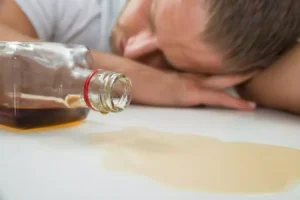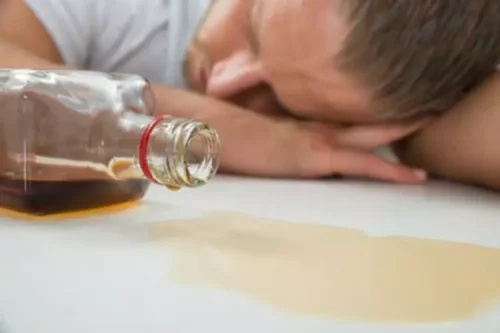Certified Company
ISO 9001 StandardOctober 19, 2020

Addiction is a chronic, relapsing brain condition with anywhere from 40% to 60% of those in recovery relapsing at least once. As such, the relapse rate for addiction mirrors that of other chronic diseases. How you negotiate any roadblocks on your recovery journey could be the difference between ongoing sober living and repeated relapse. Mindfulness practices and stress-reduction techniques (e.g., biofeedback) help manage cravings by regulating emotional responses. Nutritional counseling and exercise improve physical health, which often deteriorates during relapse.
- The actual relationship between stress and relapse in this study is difficult to assess, however, because the followup period was rather brief (i.e., 12 weeks) and the study did not assess the effects of chronic stress.
- Relapse is total dysfunction, where a person has continually engaged in a pattern of thoughts or behaviors that destabilizes recovery and makes the use of alcohol or other drugs appealing.
- An event that is perceived as extremely stressful by one person may be perceived as harmless by another.
- UKAT aspires to deliver the highest quality care across all our centres and clinics.
- A slip leads to a relapse, but it is not inevitable if the person quickly recommits to their recovery and seeks the right support.
Remember that addiction is a chronic brain disorder
Identifying any triggers that might make you want to https://ecosoberhouse.com/ drink again is essential. Activities, such as exercising or journal writing, can also provide a distraction when triggering events occur. Another coping skill is to create a list of consequences should you relapse. Often, this is enough to redirect your thoughts and get you back on track.
- A reported 40-80% of individuals who have received treatment for alcohol use disorder have at least one drink within a year of treatment completion.3 This single drinking event qualifies as a slip.
- Ongoing monitoring via urine tests or digital tools (e.g., apps) tracks progress and flags risks.
- Yes, medications such as naltrexone, acamprosate, or a combination of both have shown to be effective in preventing alcohol relapse.
- For example, human laboratory studies have not uniformly supported a prominent theory called the tension-reduction hypothesis of alcohol use, which posits that people use alcohol to reduce stress.
- Mindfulness practices and stress-reduction techniques (e.g., biofeedback) help manage cravings by regulating emotional responses.
What to Do After an Alcoholic Relapse

Combine those two scenarios together, and you get a small, but informative picture of the opioid crisis in America. The motivational, reinforcing, or rewarding effects of a drug (e.g., euphoria) are those effects that motivate the drug user to seek the “reward” and therefore consume more of the drug. Dopamine modulates such heroin addiction varied functions as emotion, aggression, cognition, the coordination of movement, and aspects of the development of addiction. You may not know all your possible triggers at the beginning, which is why it can be a list that evolves over time. If you have a loved one you are concerned about or who has recently relapsed, get in touch with us for professional advice and guidance.

Useful Tips To Help You Stay Sober This Thanksgiving

Then, when that person becomes sober and experiences withdrawal, their body and their tolerance levels react accordingly, pushing their tolerance closer to normal. When a person then relapses on opioids, they take the same increased amount of opioids as they had before and the body isn’t ready to process that amount of drugs. In summary, stress management techniques are an integral part of most AOD abuse treatment programs, although it is difficult to specifically ascertain the value of these techniques.
- In fact, according to Alcohol.org, 40-60% of us will relapse at some point in our recovery.
- Studies indicate that treatment techniques which foster coping skills, problem-solving skills, and social support play a pivotal role in successful treatment.
- Returning to an day treatment can ensure that you develop the skills you need to successfully manage your recovery and prevent yourself from relapsing in the future.
- Recovering from alcohol dependence and addiction can be a long and challenging process and you may experience several triggers, cravings, or relapses along the way.
- While addiction treatment can help you learn to manage your addiction, you have to stick to your recovery maintenance techniques to remain sober.
- Basically, alcohol use floods the brain with the feel-good neurotransmitter, dopamine, causing feelings of euphoria.
Teen & Young Adult Treatment Tracks
Emotionally, remaining sober after a lifetime of alcohol abuse is hard work and brings with it new responsibilities. Recovering alcoholics are still learning new coping mechanisms to replace their old habit of turning to the bottle at the slightest sign Alcohol Relapse of trouble. In this light, even small daily stressors can seem like insurmountable obstacles to the newly sober addict. You may begin to change the daily routine that you developed in early sobriety that helped to replace your compulsive behaviors with healthy alternatives. You might begin to practice avoidance or become defensive in situations that call for an honest evaluation of your behavior. You try to convince yourself that everything is OK, but it’s not.
You may feel loneliness, frustration, anger, resentment, and tension. It can bring on feelings of shame, frustration, and often cause someone to feel as if they are incapable of changing their behavior or achieving their goals. Addiction is a disease that causes imbalances in the brain’s neurotransmitter (chemical messenger) systems. Affected neurotransmitter systems include the serotonin, opioid, and dopamine systems. Remember, you are an important part of the treatment team with enormous power to do good for your loved one.

